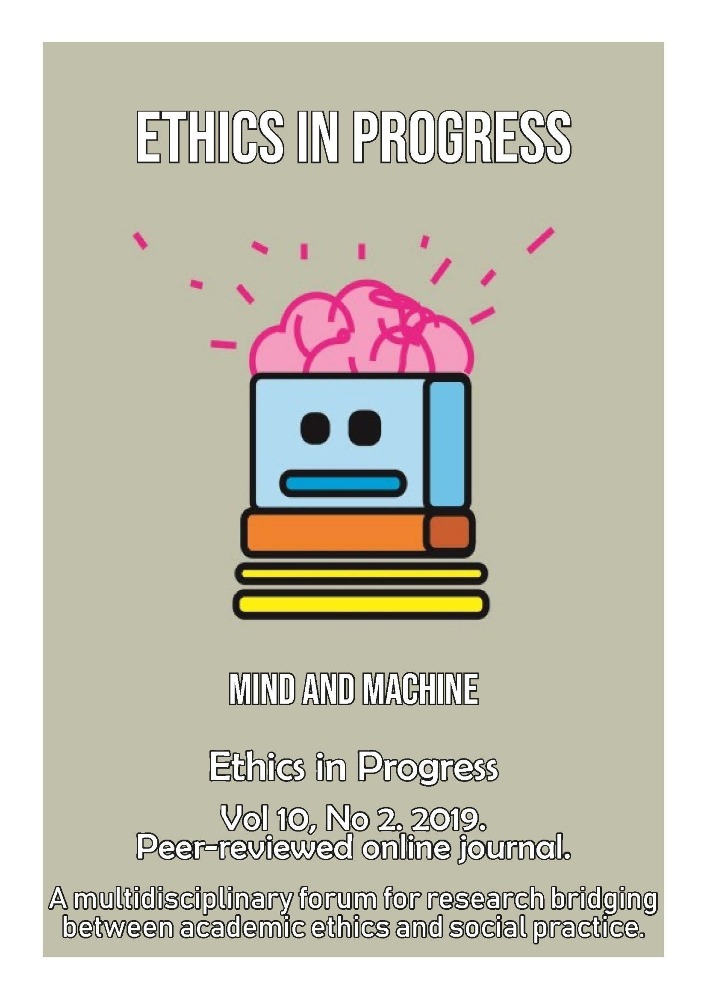Abstract
The development of increasingly intelligent and autonomous technologies will eventually lead to these systems having to face morally problematic situations. This is particularly true of artificial systems that are used in geriatric care environments. The goal of this article is to describe how one can approach the design of an elder care robot which is capable of moral decision-making and moral learning. A conceptual design for the development of such a system is provided and the steps that are necessary to implement it are described.
Funding
MNiSW grant 261/ WCN/2019/1 “Wsparcie dla Czasopism Naukowych”
References
Anderson S., Anderson M., & Armen, Ch. 2006. “MedEthEx: A Prototype Medical Ethics Advisor.” Proceedings of the Eighteenth Conference on Innovative Applications of Artificial Intelligence, AAAI, Boston, Mass.
Anderson S. & Anderson M. 2008. “ETHEL: Toward a Principled Ethical Elder Care Robot.” Proceedings of the AAAI Fall 2008 Symposium on AI in Eldercare: New Solutions to Old Problems, Arlington, Virginia.
Anderson S. & Anderson M. 2011. “A Prima Facie Duty Approach to Machine Ethics and Its Application to Elder Care.” Proceedings of the AAAI Workshop on Human-Robot Interaction in Elder Care, San Francisco.
Arkin R. 2007. “Governing Lethal Behavior: Embedding Ethics in a Hybrid Deliberative/ Reactive Robot Architecture.” Technical Report GIT-GVU-07-11. College of Computing. Georgia Institute of Technology.
Axelrod R. 1984. The Evolution of Cooperation, New York: Basic Books.
Bajo J. et al. 2008. “GR-MAS: Multi-Agent System for Geriatric Residences.” Frontiers in Artificial Intelligence and Applications 178 ECAI 2008:875-876.
Beauchamp T. & Childress J. 1979. Principles of Biomedical Ethics. Oxford, NY: Oxford
University Press.
Coeckelbergh M. 2012. “How I Learned to Love the Robot.” In: I. Oosterlaken & J. van den Hoven (Eds.), The Capability Approach. Technology and Design (pp. 77-86). Dordrecht: Springer.
Dancy J. 2013. “Moral Particularism.” In: The Stanford Encyclopedia of Philosophy (Fall 2013 Edition), E. N. Zalta (Ed.). URL = <http://plato.stanford.edu/archives/fall2013/entries/moral-particularism/>.
De Paz Santana J. F et al. 2015. “An Integrated System for Helping Disabled and
Dependent People: AGALZ, AZTECA, and MOVI-MAS Projects.” Advances in Intelligent Systems and Computing 333:3-24.
Floridi L. & Sanders J. W. 2004. “On the Morality of Artificial Agents.” Minds and Machines 14:349-79.
Frankfurt H. 1971. “Freedom of the Will and the Concept of a Person.” Journal of Philosophy 68:5-20.
Horgan T. & Timmons M. 2009. “What Does the Frame Problem Tell Us About Moral Normativity?.” Ethical Theory and Moral Practice 12:25-51.
Knobe J. 2004. “What is Experimental Philosophy?.” The Philosophers’ Magazine 28:37-39.
Levy N. 2014. Consciousness and Moral Responsibility, Oxford: Oxford University Press.
McCarthy J. & Hayes P. J. 1969. “Some Philosophical Problems from the Standpoint of Artificial Intelligence.” In: B. Meltzer & D. Michie (Eds.), Machine Intelligence (pp. 463-502). Edinburgh, UK: Edinburgh University Press.
Misselhorn C. 2013. “Robots as Moral Agents?.” In: F. Roevekamp (Ed.), Roboethics, Proceedings of the Annual Conference on Ethics of the German Association for Social Science Research on Japan (pp. 30-42). München: Iudicum.
Misselhorn C. 2015. “Collective Agency and Cooperation in Natural and Artificial Systems.” In: C. Misselhorn (Ed.), Collective Agency and Cooperation in Natural and Artificial Systems. Explanation, Implementation and Simulation. Philosophical Studies Series 122 (pp. 3-25). Dordrecht: Springer.
Misselhorn C. 2018 (3rd ed. 2019). Grundfragen der Maschinenethik, Stuttgart: Reclam.
Misselhorn C. et al. 2013. “Ethical Considerations Regarding the Use of Social Robots in the Fourth Age.” GeroPsych – The Journal of Gerontopsychology and Geriatric Psychiatry Special Issue: Emotional and Social Robots for Aging Well? 26:121-133.
Nichols S. & Knobe J. (Eds.) 2008. Experimental Philosophy. Oxford, NY: Oxford University Press.
Nussbaum M. 1985). “Finely Aware and Richly Responsible. Moral Attention and the Moral Task of Literature.” Journal of Philosophy 82:516-529.
Nussbaum M. 2006. Frontiers of Justice: Disability, Nationality, Species Membership. Cambridge, London: The Belknap Press of Harvard University Press.
Nussbaum M. 2001. “Adaptive Preferences and Women’s Options.” Economics and Philosophy 17:67-88.
Nussbaum M. & Sen A. 1993. The Quality of Life. Oxford: Clarendon Press.
Parra V. et al. 2014. “A Multiagent System to Assist Elder People by TV Communication.” ADCAIJ: Advances in Distributed Computing and Artificial Intelligence Journal 3:10-16.
Rawls J. 1993. Political Liberalism. New York: Columbia University Press.
Ross W. D. 1930. The Right and the Good. Oxford: Clarendon Press.
Shanahan M. 2009. “The Frame Problem.” The Stanford Encyclopedia of Philosophy (Winter 2009 Edition), E. N. Zalta (Ed.). URL = <http://plato.stanford.edu/archives/ win2009/entries/frame-problem/>.
Von der Pfordten D. 2012. “Five Elements of Normative Ethics – a General Theory of Normative Individualism.” Ethical Theory and Moral Practice 15:449-71.
Wallach W. & Allen C. 2009. Moral Machines: Teaching Robots Right from Wrong. Oxford, NY: Oxford University Press.
Zato Domínguez C. et al. 2013. “Virtual Organizations of Agents for Monitoring Elderly and Disabled People in Geriatric Residences” (pp. 327-333). Information Fusion (FUSION) 2013. 16th International Conference, Istanbul, Turkey, July 9-12 2013




